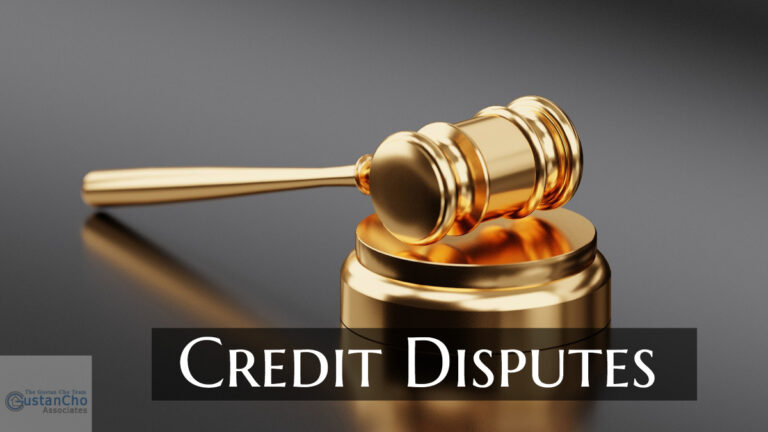How To Get Mortgage With Bad Credit and Low Credit Scores
In this article, we will cover how to get mortgage with bad credit lenders with no overlays. Many borrowers have a hard time on how to get mortgage that they can qualify for. The government wants consumers to do mortgage shopping to get the best rates and terms. But many borrowers will not qualify for a mortgage loan no matter how many lenders they go to.
So how do you do mortgage shopping when nobody is willing to give you a mortgage loan? In this BLOG we will discuss mortgage shopping and what types of loan programs there are for various borrowers. Borrowers can shop for mortgage lenders who have no lender overlays.
NON-QM And Bank Statement Loans For Self-Employed Borrowers
Borrowers can shop for mortgage lenders who can originate and fund Non-QM Loans. Borrowers can do mortgage shopping for the best mortgage rates and lender credit for a refinance mortgage. Borrowers can do mortgage shopping by looking for a lender where they can do a cash-out refinance mortgage. Borrowers can do mortgage shopping for a second mortgage or a second mortgage lender that can do an 80-15-5 Piggyback Mortgage. Borrowers can do mortgage shopping by looking for a lender that can do a 95% LTV Jumbo Mortgage. There are so many variables with mortgage shopping.
Evaluate Credit And Financial Profile
Tips on how to get a mortgage are easy if you have perfect credit, low debt-to-income ratios, and great payment history on all of your bills. However, this is not the case for many people. Many hard-working folks did go through financial hardship and have credit issues
What Do Lenders Consider As Valid Extenuating Circumstances
Here are some extenuating circumstances many folks have gone through:
-
- Loss of employment
- Gaps in employment
- Medical issues
- Divorce
- Death in family
How To Get Mortgage With Collections And Charge Offs
For borrowers with bad credit such as unpaid outstanding collection accounts or charge-off accounts, the best mortgage program for them is an FHA Loan. HUD, the parent of FHA, is more lenient with bad credit than Fannie Mae or Freddie Mac. HUD does not disqualify borrowers with outstanding collection accounts and charged-off accounts.
Many borrowers who come to me with outstanding collections and charge-offs were told by other lenders that they do not qualify for an FHA Loan. This was true unless they have paid off their unpaid collections and charge-off accounts. This is not the case.
HUD Guidelines On Collections And Charged-Off Accounts
FHA Guidelines On Collections And Charge Offsare very lenient compared to other mortgage loan programs. HUD Does Not Require Borrowers To Pay Off Outstanding Collections Accounts. HUD Does Not Require Borrowers To Pay Off Outstanding Charge Offs. HUD Exempts Medical Collections From DTI Calculations.
Using 5% of Outstanding Collection Account Debt For Debt to Income Ratio
HUD Requires Any Non-Medical Collections With Total Aggregate Balances Of Over $2,000. The Following. 5% of the outstanding unpaid balance needs to be used as a monthly debt of the borrower used towards the calculation of the borrower’s debt-to-income ratio.
This holds true even though the borrower does not have to pay and/or if the borrower has a written payment agreement with the creditor or collection agency. The amount agreed upon can be used as the monthly debt in the calculation of the borrower’s monthly debt in the DTI calculation in lieu of the 5%.
Exempt Collections From 5% Hypothetical Debt Rule
There are certain collections from the 5% hypothetical debt payment rule. Medical Collections Are Exempt From Credit Disputes and exempt from taking 5% of the outstanding collections and using it for the debt-to-income ratio. Charge Off Accounts Cannot Have Any Credit Disputes and is exempt from the 5% of taking the outstanding balance for debt to income ratio calculation rule.
Zero Balance Non-Medical Collection Accounts are also exempt from credit disputes. Any Non-Medical Collections With Under $1,000 Aggregate Total In Unpaid Outstanding Balance Can Have Credit Disputes. Any non-medical collections that are older than 24 months old are exempt from credit disputes.
How To Get Mortgage After Bankruptcy And Foreclosure
Due to the above reasons, many folks have gone through tough financial and credit issues but over time they have recovered. However, many lenders will look at the borrowers’ overall payment history that reflects on their credit reports. Just because they have overcome their credit and financial issues and are stable, lenders do look at the borrower’s past. Here are some issues many borrowers are faced with and come to me and ask me for help on how to get a mortgage:
Prior bankruptcy:
-
- Borrowers can qualify for VA and FHA Loans 2 years after a Chapter 7 Bankruptcy discharged date
- There is a three-year waiting period to qualify for USDA and FHA Loans after the recorded date of the foreclosure, deed in lieu of foreclosure, or the date of a short sale
- The waiting period is two years after the housing event on VA Loans
- Borrowers can qualify for VA and FHA Loans one year into a Chapter 13 Bankruptcy Repayment Plan
- Borrowers can qualify for VA and FHA Loan with no waiting period after a Chapter 13 Bankruptcy discharged date
- Can qualify for a Conventional Loan four years after a Chapter 7 Bankruptcy discharged date
- Two-year after the Chapter 13 discharge date on conventional loans
- The four-year waiting period after the Chapter 13 dismissal date on conforming loans
Fannie Mae Guidelines on Conventional Loans After Bankruptcy and Foreclosure
Borrowers can qualify for Conventional Loans as follows:
- Four years from the discharge date of the Chapter 7 Bankruptcy with prior mortgage or mortgages as part of their Chapter 7 Bankruptcy
- This holds true no matter when the deed was recorded even though it was after the discharged date of the Chapter 7 Bankruptcy discharged date
- However, the deed needs to be out of the borrower’s name whether it was a foreclosure, deed in lieu of foreclosure, or short sale
- There is a four-year waiting period to qualify for a Conventional Loan after the recorded date of a deed in lieu of foreclosure or date of a short sale
- There is a seven-year waiting period to qualify for a Conventional Loan after the recorded date of a foreclosure
Qualifying For Non-QM Loans
Non-QM Loans are non-traditional loan programs such as no income verification loans, bank statement loans, and specialty loan programs such as no waiting period after a foreclosure or short sale. Non-QM programs do require more down payments and rates are higher than government and Conventional Loan Programs.
The Benefits of Non-QM Loans During Hot Housing Market
The advantage of Non-QM Loansis it gives a home buyer an opportunity to get financing on a residential home loan today instead of waiting to get financing at a later date. This can be a major benefit for homebuyers in fast-appreciating areas like many areas of the United States.
For more information on the contents of this article or other mortgage-related articles, please contact us at Gustan Cho Associates at 800-900-8569 or text us for a faster response. Or email us at gcho@gustancho.com. We are direct lenders with no lender overlays on government and conforming loans. We are also experts on Non-QM Mortgages and bank statement mortgage loans for self-employed borrowers. The Team at Gustan Cho Associates Mortgage Group is available 7 days a week, on evenings, weekends, and holidays.





